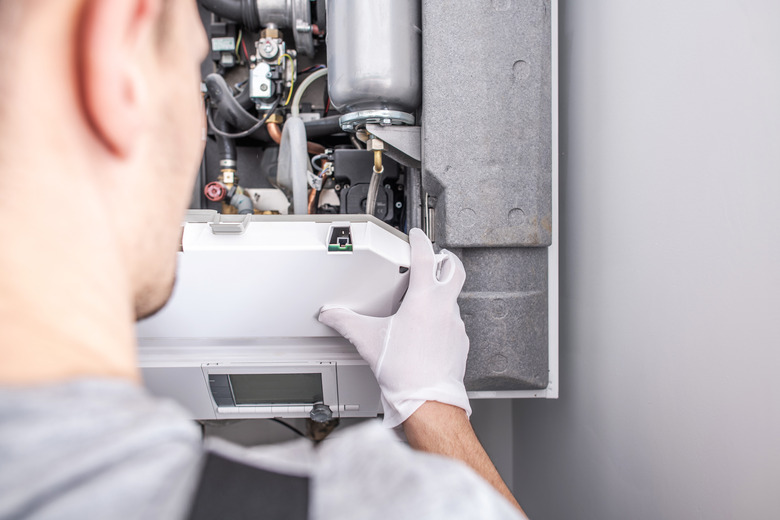Furnace Tune-Up: What To Expect
Should you schedule a furnace tune-up annually as part of your winter home prep checklist? Service pros say yes, and most furnace manufacturers agree, often making the warranty dependent on regular tune-ups. In practice, however, the number of homeowners who get yearly furnace tune-ups is about the same as the number of car owners who get regular tune-ups for their cars.
Besides possibly voiding the warranty on your furnace, failure to spend the $80 to $200 for a professional furnace tune-up could cost you extra in energy costs, and it could leave you without heat in the middle of winter.
Basics of HVAC Tune-Ups
Basics of HVAC Tune-Ups
Part of your HVAC system, a furnace is a complex system of electronic controls and machinery that takes skill and experience to evaluate. If your system runs on gas or propane, special equipment is needed to monitor combustion gases and check for leakages.
All systems need to be checked for air leaks, condensation and rust. Not every package includes all possible tune-up procedures, but if you choose a budget package and your system needs more intensive TLC than the service package provides, a licensed technician will advise you of that fact in a written report.
Some tune-up procedures don't take professional skill, and you can often save money by taking care of some of these yourself before the technician arrives. Some, such as checking and cleaning furnace filters, should happen more often than once a year.
Furnace Tune-Up: Detailed Inspection
Furnace Tune-Up: Detailed Inspection
A central air system that provides only heat uses a gas or oil burner, or an electric element, and a blower to circulate the air through a system of ducts. Although this is the least complex central air system, it still has a number of vulnerabilities that can affect performance and ultimately energy costs. To ensure everything is running as it should, a technician will do the following:
- Inspect and clean the blower compartment. This often involves removal of the blower wheel for cleaning and lubrication.
- Check all the wire connections and do a current check on the motor to be sure it's operating at the specified amperage rating. If it's drawing more power than it should, the technician will diagnose the cause and recommend repair if it isn't easily fixable as part of the tune-up.
- Examine the pilot and adjust the burner on gas-powered units. If combustion is less efficient than it should be, the technician will clean ports on the gas valve and pilot tube.
- Evaluate air flow through all the heating vents and check for leaks in the ducts.
- Inspect for moisture rust in the blower housing and ducts.
- Check all the furnace filters and clean or replace them as needed.
- Test the thermostat.
Homeowners can take care of the last two items on the list themselves. Many furnace malfunctions can be traced to improper thermostat settings, and homeowners can check the programming with the help of the thermostat manual. Filters should be inspected and cleaned at least twice a year. This can be more often based on cleanliness or pets in your home.
Heating/Cooling Systems Require Extra TLC
Heating/Cooling Systems Require Extra TLC
Add a cooling component, either in the form of an central air conditioner or a heat pump, and the vulnerabilities of the system also increase. A cooling system requires refrigeration coils similar to the ones in a refrigerator or window air conditioner, and it also requires a drainage system to eliminate condensation from the coils.
Tuning up the cooling system calls for procedures above-and-beyond a basic furnace tune up. They include checking the refrigerant levels, inspecting the coils for leaks and clearing any clogs that might be causing water to back up in the drainage system. The tune-up also involves a more careful inspection for rust and corrosion, since moisture is more likely to be present in a refrigeration system.
Benefits of a Furnace Tune-Up
Benefits of a Furnace Tune-Up
Besides the obvious advantage of keeping the warranty on your central air system in force, a tune-up also ensure the system will last as long as it's designed to do. Just as for cars and other machinery, neglected tune-ups are a major reason for premature failure of HVAC equipment.
Tuning up your furnace or central air system also ensures that it's running efficiently, and that means energy savings by as much as 30 percent. You can realize some of these savings by regularly servicing the filters on your system, but getting a pro to check seals, clean gas valves and inspect wiring is money well spent. If your system runs efficiently, you won't just save precious resources, but you'll also be more comfortable curling up in front of the television on snowy and windy winter nights.
